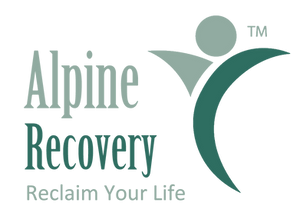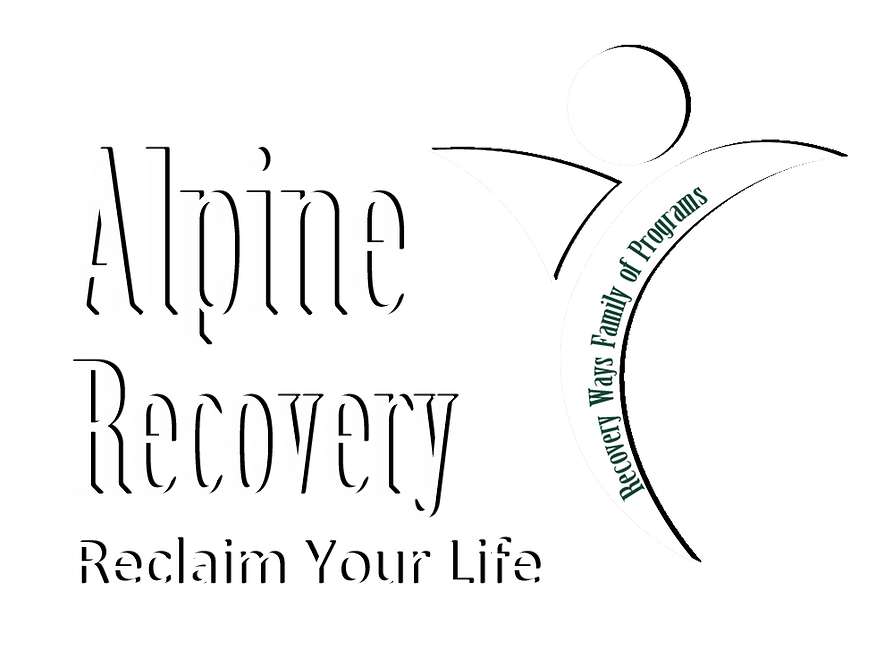Alcohol Treatment In Everett Wa
Table of Contents
Alcohol Treatment Options in Everett, Washington
In the Puget Sound region, alcohol use disorders affect thousands, with Snohomish County reporting over 10,000 individuals seeking alcohol treatment in Everett, Washington, according to the Washington State Health Care Authority. Timely intervention is crucial to prevent escalation and support lasting recovery, especially amid rising substance use challenges.
For those exploring alcohol rehab centers in Everett, Washington, Alpine Recovery in nearby Arlington offers comprehensive outpatient alcohol treatment in Everett residents can access easily. Located at 16404 Smokey Point Boulevard, Arlington, WA, our drug and alcohol treatment everett wa programs include intensive outpatient options tailored for adults and veterans, backed by Joint Commission accreditation and in-house benefits verification for seamless access to local substance use support in Washington.
This guide explores recovery programs near Everett, detailing services, key considerations, and next steps to empower your journey toward sobriety.
Overview of Addiction Recovery in the Everett Area
In Snohomish County, where Everett serves as a central hub, alcohol use affects thousands of adults annually, with recent state reports indicating over 20,000 residents facing alcohol-related challenges each year. Access to effective alcohol treatment in Everett, Washington, remains crucial for addressing these issues, particularly as local demand grows due to the area’s mix of urban and suburban lifestyles. Facilities in the region offer varied support, from emergency interventions to ongoing care, helping individuals navigate recovery amid work and family commitments.
When comparing program models, inpatient options provide intensive supervision for severe cases, such as those requiring medical detox, while outpatient alcohol treatment in Everett allows flexibility for daily routines. For instance, inpatient stays at hospitals focus on stabilization over 24-hour monitoring, contrasting with outpatient programs that emphasize counseling and skill-building sessions. Local recovery facilities near Everett often integrate drug treatment everett wa elements into detox follow-up, supporting smoother transitions. Washington state alcohol programs also include free or low-cost options through Medicaid and community grants, making care more accessible without sacrificing quality.
Key alcohol rehab centers in Everett, Washington, include Providence Regional Medical Center for inpatient detox and emergency services, Alpine Recovery in nearby Arlington for outpatient intensive programs, Lakeside-Milam in Kirkland for residential rehab, and Evergreen Recovery Centers with multiple outpatient sites. These providers cater to diverse needs, from veteran resources to sliding-scale fees.
Everett residents often seek convenient, cost-effective options that fit busy schedules, given the area’s commuting patterns and proximity to Puget Sound industries. The following table outlines key differences among leading centers:
| Center | Program Types (Inpatient/Outpatient) | Cost Range (with Insurance) | Accreditation | Proximity to Everett |
|---|---|---|---|---|
| Alpine Recovery (Arlington) | Outpatient, IOP, Partial Hospitalization | $0-$5,000 (Insurance accepted, benefits verification) | Joint Commission | 10-15 min drive, serves Puget Sound region, veteran resources |
| Providence Regional Medical Center (Everett) | Inpatient Detox, Outpatient Follow-up | Varies, insurance/Medicaid | The Joint Commission, local hospital | In Everett (0 min), emergency access |
| Lakeside-Milam (Kirkland) | Inpatient Rehab, Outpatient | $10,000+ (Private pay dominant) | State licensed | 30-40 min drive, less local focus |
| Evergreen Recovery Centers | Inpatient/Outpatient | Sliding scale/free options via state funding | CARF accredited | Multiple sites, nearest ~20 min, community-based |
Data sourced from state health resources and center websites; costs approximate and subject to insurance–verify benefits directly. Outpatient models like those at Alpine Recovery stand out for most Everett adults, offering structured support without disrupting employment or family life, as highlighted by Providence’s inpatient focus on acute needs and Lakeside-Milam’s regional inpatient services.
Available Alcohol Treatment Services Near Everett
With local options in mind, here’s what Alpine Recovery provides for Everett residents seeking alcohol treatment in Everett, Washington. As one of the premier alcohol rehab centers in Everett, Washington, Alpine Recovery specializes in flexible, evidence-based outpatient programs that support recovery without disrupting daily life. These intensive recovery options near Everett emphasize personalized care, drawing from accredited clinical standards to address substance use disorders effectively.
Alpine Recovery’s core services begin with comprehensive initial assessments to evaluate individual needs and develop tailored treatment plans. For those requiring more structured support, partial hospitalization offers intensive daily sessions focused on therapy, education, and skill-building to stabilize early recovery. The intensive outpatient program, known as iop everett wa, provides a balanced approach with group and individual counseling several times weekly, allowing participants to maintain work or family commitments while reducing relapse risks through ongoing coordination. This outpatient alcohol treatment in Everett contrasts with inpatient alternatives by promoting community reintegration sooner, ideal for veterans transitioning from service-related challenges. Community referrals connect clients to local supports, enhancing long-term success.
Accessibility is key at Alpine Recovery’s Arlington clinic, just a short drive from Everett. Clinic hours are Monday through Thursday from 9 a.m. to 6 p.m., and Friday from 9 a.m. to 12 p.m. Contact the team at 360-658-1388 via phone or SMS for immediate inquiries. The facility verifies insurance benefits promptly during intake, ensuring financial clarity. Unlike sliding-scale models at places like Evergreen Recovery Centers, Alpine’s insurance-focused process makes local outpatient care in Washington more straightforward for insured Everett residents, streamlining access to quality care.
Key Considerations for Alcohol Recovery in Everett
While services are available, consider these factors to ensure alcohol recovery in Everett fits your needs and budget. Costs for alcohol treatment in Everett, Washington, vary widely, but understanding them empowers informed decisions.
Average rehab expenses without insurance range from $5,000 to $20,000 for a 30-day program, according to Recovery.com listings. Inpatient stays often hit the higher end due to 24/7 care, while outpatient options average $5,000 to $10,000. For clarity:
- Standard intensive outpatient program (IOP): $300-$500 per session
- Partial hospitalization: $400-$600 daily
Affordable recovery in Everett becomes accessible through insurance for local treatment. Most major plans, including Medicaid via Washington state’s HCA, cover outpatient alcohol treatment in Everett at facilities like Alpine Recovery, which verifies benefits upfront to minimize surprises. Nonprofits and state-funded programs offer free or low-cost options, such as sliding-scale fees or grants for uninsured individuals, addressing common barriers for Everett residents.
When selecting alcohol rehab centers in Everett, Washington, prioritize accreditation like The Joint Commission, proximity for family support, and program type matching your lifestyle. Outpatient suits working professionals, contrasting inpatient’s higher costs but intensive structure. Employer or legal referrals streamline access to drug rehab everett washington, while Alpine’s intake team coordinates these pathways, ensuring a seamless start to recovery.
Steps to Begin Alcohol Treatment in Everett
Once local factors are clear, here’s how to proceed with alcohol treatment in Everett, Washington. Alpine Recovery, located just a 15-minute drive via I-5 from Everett, offers accessible outpatient options for starting recovery near Everett. This streamlined intake process in Washington ensures quick access while prioritizing confidentiality throughout.
- Contact Alpine Recovery: Reach out to alcohol rehab centers in Everett, Washington, like Alpine Recovery by calling 360-658-1388 during business hours (Monday-Thursday 9am-6pm, Friday 9am-12pm). Alternatively, use their online contact form or opt for SMS outreach for a prompt response. This initial step connects you with their dedicated intake team, available to answer questions about services.
- Verify Your Benefits: Utilize Alpine’s free Verify Benefits tool on their website to check insurance coverage. Submit your provider details, phone, and ID information securely. This aligns with Washington State Health Care Authority protocols for substance use treatment verification, helping identify low-cost or covered options without delay.
- Schedule an Assessment: After verification, book a confidential assessment appointment. Alpine’s clinicians evaluate your needs to recommend the right level of care, such as intensive outpatient programs.
- Prepare for Intake: Gather necessary documents, including ID and any relevant medical or substance use history. Arrive at 16404 Smokey Point Boulevard, Suite 109, Arlington, WA 98223, ready to discuss your goals in a supportive environment.
- Enroll and Transition: Complete enrollment paperwork and begin outpatient alcohol treatment in Everett through tailored plans, including potential shifts to intensive outpatient or partial hospitalization as needed. Referrals to community supports ensure ongoing recovery success.
Your Path to Lasting Recovery Near Everett
Seeking alcohol treatment in Everett, Washington, means choosing accessible options like Alpine Recovery’s outpatient programs. As a leading outpatient alcohol treatment in Everett among local alcohol rehab centers in Everett, Washington, we simplify benefits verification and provide dedicated support for veterans and employers, ensuring a smooth path to sobriety.
Embrace your recovery journey in Washington today. Contact Alpine Recovery at 360-658-1388 for a confidential assessment and connect with ongoing support in the Everett area, including community partners like Evergreen Recovery Centers. Hope and lasting change await.
Your Path to Lasting Recovery Near Everett
Seeking alcohol treatment in Everett, Washington, means choosing accessible options like Alpine Recovery’s outpatient programs. As a leading outpatient alcohol treatment in Everett among local alcohol rehab centers in Everett, Washington, we simplify benefits verification and provide dedicated support for veterans and employers, ensuring a smooth path to sobriety.
Embrace your recovery journey in Washington today. Contact Alpine Recovery at 360-658-1388 for a confidential assessment and connect with ongoing support in the Everett area, including community partners like Evergreen Recovery Centers. Hope and lasting change await.


















